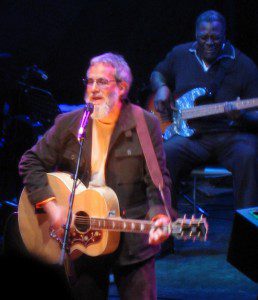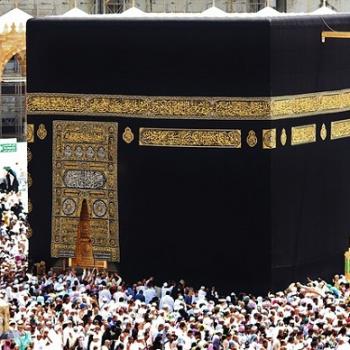 Come on, raise your hand — you know you’ve been a fan of Yusuf Islam (formerly Cat Stevens) over the years! In anticipation of his induction in the Rock and Roll Hall of Fame, the popular singer/songwriter appeared on “The Tonight Show with Jimmy Fallon,” performing some of his most popular hits. Take a look:
Come on, raise your hand — you know you’ve been a fan of Yusuf Islam (formerly Cat Stevens) over the years! In anticipation of his induction in the Rock and Roll Hall of Fame, the popular singer/songwriter appeared on “The Tonight Show with Jimmy Fallon,” performing some of his most popular hits. Take a look:
From his biography on YusufIslam.com:
His inner faith revealed itself further when his elder brother David gave him a copy of the Qur’an. It provided the key to the answers he had been looking for: It was the timeless nature of the message, he said, the words all seemed strangely familiar yet so unlike anything I had ever read before. Privately, Stevens started applying Islam’s spiritual values to his own life: he began praying directly to God and gradually cut down drinking, clubs and parties. He retreated from the music business and finally embraced Islam in 1977, changing his name to Yusuf Islam. He was still contracted to deliver one more album. But his attitude towards the music business now resounded more clearly in his lyrics: Just Another Night, from 1978, appeared on his very last rock album, appropriately entitled Back To Earth, for which the singer again teamed up with Paul Samwell-Smith.
While some fans were baffled and dismayed by his decision, his close family respected him for his spiritual conviction and were relieved. According to Yusuf, The moment I became a Muslim, I found peace. With the advent of his marriage and the birth of his first child, Hasanah, he turned his attention to education. Yusuf opened and funded the Islamia Primary School in London, which, fifteen years later, made history by becoming the first government funded Muslim school in England.
And then later:
In 2001, Yusuf sought new horizons and opened an office and established a home in Dubai, the sparkling new enterprise of futuristic thinking Muslim rulers in the Gulf region. He was impressed with the balance of this Arab state, leading the way towards a tolerant and modern society while maintaining an unshakable love of Islamic culture.
At that time, his son, Muhammad, presented him with a life altering dilemma. He bashfully showed his father a proud new possession: a guitar! Yusuf was forced to reflect again on the issue of music and instruments. After years of inquiry and soul searching, Yusuf’s doubts about the use of music within Islamic history and culture had lessened. He reached the conclusion that the evidence for banning instruments failed to meet Islamic Law’s requirements for unquestioning acceptance. He wrote an article that explained his understanding of how the evidence allowed for different views on this issue. The Qur’an does not ever actually mention the word music or instruments.
It was clear to him that the objective of branding music as makruh (disliked) or haram (forbidden) was based on juristic interpretation, probably in the desire to avoid frivolous and immoral songs, which were very much a reflection of what has universally come to be known as sex, drugs and rock’n‘roll. And although Yusuf had been famously associated with various aspects of that capacious culture during his flamboyant career, yet most of his music and lyrics explored the paths to peace and universal understanding a far cry from that wild world.
As a result, Yusuf lent full support to his son’s ambition to make an album of his own songs, and arranged for him to record in South Africa. Gradually, Yusuf became relaxed about the block he had placed on his creative ideas and began to expand his writing with the trusty help of his son’s Spanish guitar. When I picked up the guitar again it was like a floodgate, Yusuf said. Ideas and melodies floated in without effort. The novelty of the whole process, searching for forgotten chords, inspired me; it was like the simple joy of being back as an amateur, with nothing much to lose.
From his A is for Allah album (which I played for my kids growing up) to so many of his other albums, I’ve enjoyed his music over the years. I hope he continues to do good work with his music and charities.












